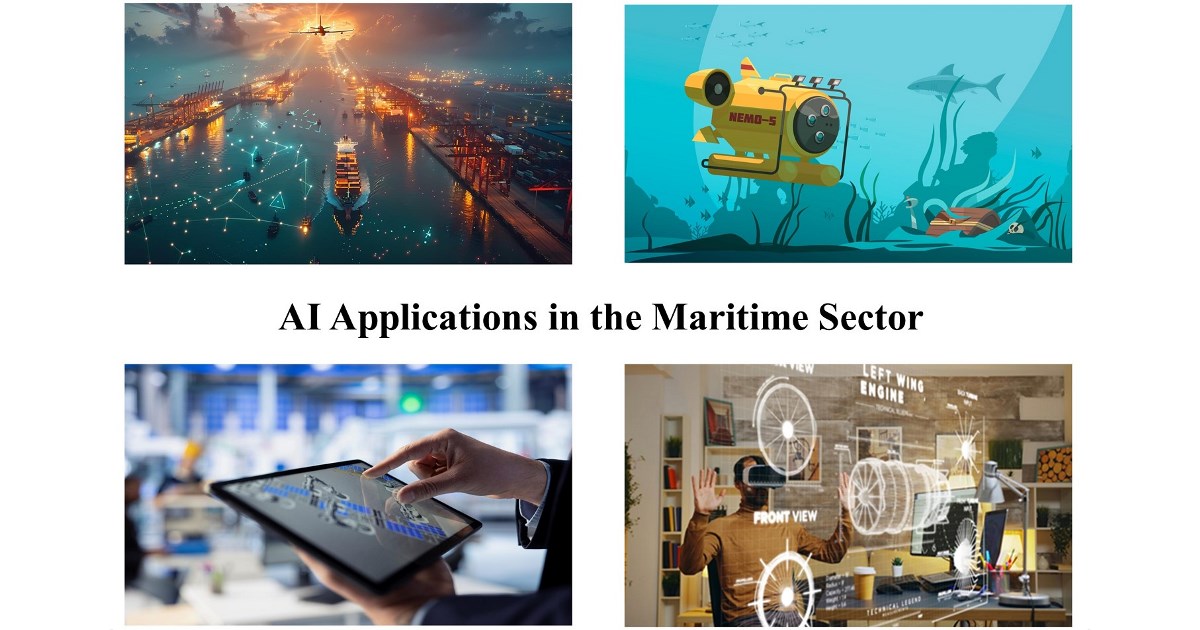AI Applications in the Maritime Sector
A special issue of Applied Sciences (ISSN 2076-3417). This special issue belongs to the section "Computing and Artificial Intelligence".
Deadline for manuscript submissions: 31 March 2026 | Viewed by 475

Special Issue Editors
Interests: signal processing and analysis; biomedical signal processing; video surveillance; ANN
Special Issues, Collections and Topics in MDPI journals
Interests: time–frequency analysis; biomedical signal processing; applied statistical signal processing; digital signal processing; IoT
Special Issues, Collections and Topics in MDPI journals
Special Issue Information
Dear Colleagues,
Artificial intelligence (AI) is currently experiencing increasing usage in multiple areas. The rapid progress in this field is affecting more and more people in almost all areas of human activity and work. One of the most sensitive areas for AI application (due to regulations) is the maritime sector. Maritime environments provide harsh conditions for the input of sensors for AI applications. It is important to explore the possibilities of AI in the maritime sector from many angles, ranging from scientific curiosity to commercial interest.
This Special Issue, ‘AI Applications in the Maritime Sector’, welcomes submissions on this promising application area. This call for papers is open to a wide range of scholarship addressing the latest applications of big data and AI in the service industry, covering technologies, drones, robotics, psychological and economic aspects, shipbuilding, advanced interfaces, and research trends to provide insights into ways to expand the use of AI in the maritime sector. This Special Issue welcomes contributions dealing with countermeasures for AI privacy protection and safeguards for AI deployments in military applications; it will also examine how AI works and how it can be controlled.
Recommended topics include, but are not limited to, the following:
- Technical applications of AI in maritime applications;
- Defense measures used by the navy against AI systems;
- Autonomous and robotic systems in the maritime sector;
- HMI interfaces in the maritime industry, and training for them;
- Remote sensing and video processing in maritime traffic surveillance;
- AI in maritime logistics and finances.
Prof. Dr. Igor Vujović
Dr. Joško Šoda
Guest Editors
Manuscript Submission Information
Manuscripts should be submitted online at www.mdpi.com by registering and logging in to this website. Once you are registered, click here to go to the submission form. Manuscripts can be submitted until the deadline. All submissions that pass pre-check are peer-reviewed. Accepted papers will be published continuously in the journal (as soon as accepted) and will be listed together on the special issue website. Research articles, review articles as well as short communications are invited. For planned papers, a title and short abstract (about 250 words) can be sent to the Editorial Office for assessment.
Submitted manuscripts should not have been published previously, nor be under consideration for publication elsewhere (except conference proceedings papers). All manuscripts are thoroughly refereed through a single-blind peer-review process. A guide for authors and other relevant information for submission of manuscripts is available on the Instructions for Authors page. Applied Sciences is an international peer-reviewed open access semimonthly journal published by MDPI.
Please visit the Instructions for Authors page before submitting a manuscript. The Article Processing Charge (APC) for publication in this open access journal is 2400 CHF (Swiss Francs). Submitted papers should be well formatted and use good English. Authors may use MDPI's English editing service prior to publication or during author revisions.
Keywords
- maritime video surveillance
- harbor traffic
- remote sensing
- artificial intelligence applications
- AI maritime logistics
- contermeasures
- AI application consequences
- human–machine interface
Benefits of Publishing in a Special Issue
- Ease of navigation: Grouping papers by topic helps scholars navigate broad scope journals more efficiently.
- Greater discoverability: Special Issues support the reach and impact of scientific research. Articles in Special Issues are more discoverable and cited more frequently.
- Expansion of research network: Special Issues facilitate connections among authors, fostering scientific collaborations.
- External promotion: Articles in Special Issues are often promoted through the journal's social media, increasing their visibility.
- Reprint: MDPI Books provides the opportunity to republish successful Special Issues in book format, both online and in print.
Further information on MDPI's Special Issue policies can be found here.






